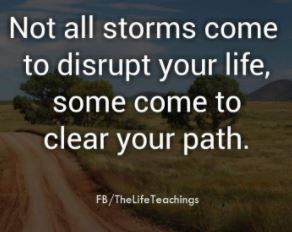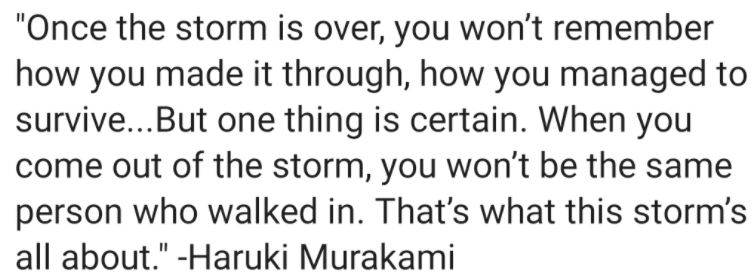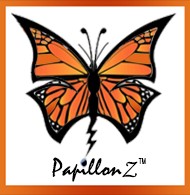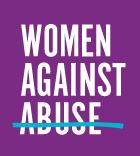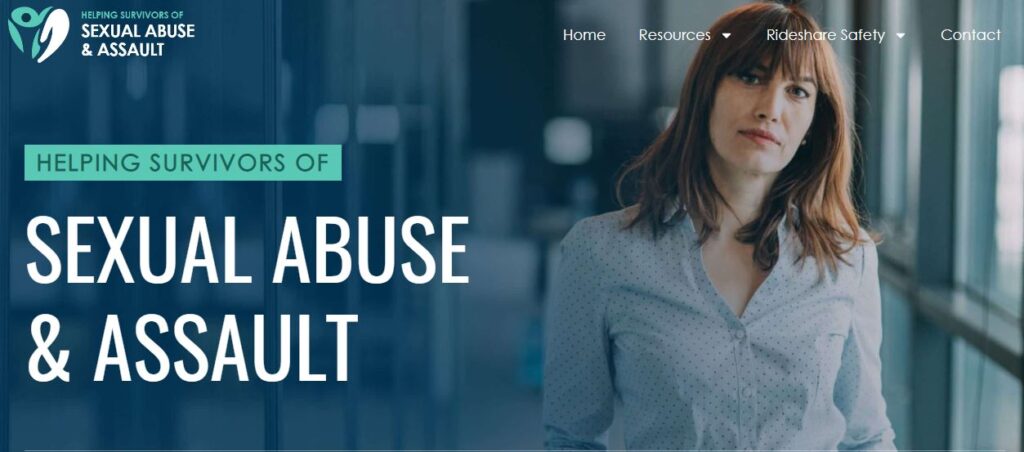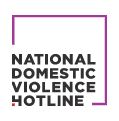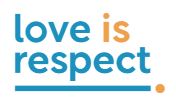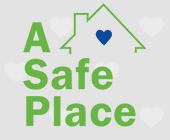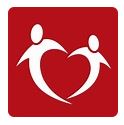Internet* Social Media* Cyberstalking* Cybercrimes* Technology Abuse* Online Dating* Dating App Safety* Prevention from Trafficking * Children & Teens
Online Safety
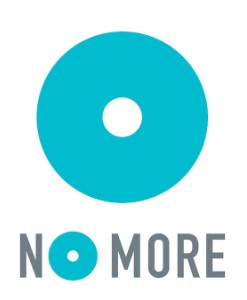
“With more than 1,400 allied organizations and over 40 state, local, and international chapters, NO MORE sparks grassroots activism, encouraging everyone—women and men, youth and adults, from all walks of life—to be part of the solution.” Click Here to learn more about NO MORE, and here How to Help Survivors
The NO MORE Silence, Speak Your Truth platform provides a safe and supportive space for people impacted by domestic violence to share their experiences, learn from other survivors, and connect to resources.
“Your story is personal and unique, but sharing it can be a healing experience for you and others.
Remember, healing is not linear and is different for everyone. It is important to stay patient with ourselves when setbacks occur in our process and forgive yourself for everything that may go wrong along the way.”
“NO MORE is a groundbreaking, global initiative comprised of the largest coalition of nonprofits, corporations, government agencies, media, schools, and individuals addressing domestic and sexual violence. We are committed to engaging, reaching, and working with people from diverse communities.” Click Here to GET HELP – Directory of domestic & sexual violence helplines & services ~ 200+ LOCATIONS AROUND THE WORLD!
Online Safety
Women Against Abuse
INTERNET SAFETY
Technological advances have allowed intimate partner violence to take new forms, including access to private information, control over online accounts, and the use of electronic devices to track one’s whereabouts.
If you are seeking information about domestic violence and ways to get help, it is possible your partner can track this information.
It is vital to protect your online activities and understand the ways in which technology may compromise your safety.
Your online activity can be monitored through a number of ways, including spyware, hacking, and keystroke loggers. Even if you are careful about deleting your browser history, it is still possible for someone to gather information about what you are doing with your computer.
Whether or not someone has direct access to your computer, it is still possible for them to remotely hack into your computer.
Please review the following tips and information from the National Network to End Domestic Violence:
- If you think your activities are being monitored, they probably are. Abusive people are often controlling and want to know your every move. You don’t need to be a computer programmer or have special skills to monitor someone’s computer and Internet activities—anyone can do it and there are many ways to monitor with programs like Spyware, keystroke loggers and hacking tools.
- It is not possible to delete or clear all the “footprints” of your computer or online activities. If you are being monitored, it may be dangerous to change your computer behaviors such as suddenly deleting your entire Internet history if that is not your regular habit.
- If you think you may be monitored on your home computer, be careful how you use your computer since an abuser might become suspicious.
- You may want to keep using the monitored computer for innocuous activities, like looking up the weather. Use a safer computer to research an escape plan, look for new jobs or apartments, bus tickets, or ask for help.
- Email and Instant/Text Messaging (IM) are not safe or confidential ways to talk to someone about the danger or abuse in your life. If possible, please call a hotline instead. If you use email or IM, please use a safer computer and an account your abuser does not know about.
- Computers can store a lot of private information about what you look at via the Internet, the emails and instant messages you send, internet-based phone and IP-TTY calls you make, web-based purchases and banking, and many other activities.
- It might be safer to use a computer in a public library, at a trusted friend’s house, or an Internet Café.
The above information is taken from the National Network to End Domestic Violence, Internet and Computer Safety page.
In addition, learn about Facebook safety with the Privacy and Safety on Facebook guide from the National Network to End Domestic Violence!
Internet Safety
Web Browsers store a history of all the pages you visit during your time on the Internet. It is imperative that you remove this information from your computer so that an abuser cannot discover it. Please remember to do this procedure before you log off the Internet.
CAUTION: If you are using your abuser’s computer, you may be leaving a trail that can be traced to this web site. Be sure to clear the view history of the web browser when you are through.
Instructions for Clearing the View History in your Web Browser:
Using the toolbar of your web browser, find the menu selection that gives you view options.
- Microsoft Internet Explorer: Use the View button, then select Options, then Navigation. In the History section, select Clear History, then OK.
- Netscape Navigator: Use the Options button, then select Network Preferences, then both Clear Memory Cache and Clear Disk Cache, then OK.
- Firefox: Open the Tools menu, then select Options. Open the Privacy tab and select “Cache” sub-category. Click the “Clear” button and then click OK to clean cache.
- AOL: Click on the Members menu, click on Preferences click on the www icon; select Advanced and then Purge Cache.
Be aware that this is not foolproof. An observant computer user may notice that the history is gone, and get suspicious.
If you feel you may be at risk if your abuser discovers you were using the Internet, call 911 or RAINN at 1.800.656.HOPE, The Rape, Abuse & Incest National Network.
(Source: aftersilence.org
“The above information has been adapted from mcleancountyil.gov, and is provided for guidance only.”)
Information & Support for Survivors
How to Report Sexual Assault & Abuse
Child Sexual Abuse (Church, Schools, Foster Care, etc.)
Grooming: Know the Warning Signs (Children, Teens, Adults)
About WomensLaw.org
(En Español)
Despite its name, WomensLaw.org provides information that is relevant to people of all genders, not just women. Our Email Hotline will provide legal information to anyone who reaches out with legal questions or concerns regarding domestic violence, sexual violence, or any other topic covered on WomensLaw.org.
About Abuse
These pages provide an overview of domestic violence and sexual assault as well as more detailed information about specific forms of abuse.
- Am I Being Abused? (Danger Assessment; Signs of Abuse)
- Forms of Abuse (Abuse Using Technology; Domestic Violence/Teen Violence; Emotional Abuse; Financial Abuse; Reproductive Abuse & Coercion; Sexual Abuse & Exploitation; Stalking & Cyberstalking; Litigation Abuse)
- Abuse in Specific Communities (Abuse Among People Living with AIDS/HIV; Abuse in Immigrant Communities; Abuse in Tribal Communities; Information for Teens & Young Adults; LBGTQIA Victims; Male Victims; Abuse in Jewish Community; Elder Abuse
- Safety Tips (Domestic Violence Victims; Stalking Victims; Safety Planning with Children; Safety in a Confidential Address; Safety in Court; Safety in Rural Areas; Safety While Using the Internet; Safety While Using Social Media
- In the Workplace (Sexual Harassment by a Co-Worker or Boss; Workplace Restraining Orders (filed by Employer)
Find Help (US Map)
Find Help for Yourself and for Others | WomensLaw.org
Click on your state (in the map or in the drop-down menu) to find contact information for:
- advocates in local domestic violence programs and shelters;
- legal assistance organizations;
- courthouse locations where you can file for a protection order; and
- sheriff departments. If you need to talk to someone about an abusive relationship, you can call the National Domestic Violence Hotline at 1-800-799-7233.
Legal Information (US Map)
Legal Information | WomensLaw.org
- Know the laws – By State
- Preparing for Court – By Yourself
- Immigration
- Federal Gun Laws
- Domestic Violence in the Military
- Videos
Helping Others
Helping Others | WomensLaw.org
- Family, Friends, Co-Workers
- Advocates
- Lawyers
- Doctors, Healthcare Professionals
- Salon Professionals
Womens Law Email Hotline: WomensLaw.org Email Hotline
Other Helpful Information:
Advocates and Shelters | WomensLaw.org (drop-down menu for your State)
National Organizations | WomensLaw.org (listed by subject matter)
Chat Rooms and Message Boards | WomensLaw.org
There are a variety of support services available to victims of domestic violence and sexual assault on the Internet. We have listed some of these resources.
Internet Safety – The Hotline
Call 1.800.799.SAFE (7233)
Internet Safety
Stay safe. Stay connected.
Technology and the Internet are powerful tools for anyone experiencing domestic violence. They can be essential resources to access help and information, and valuable platforms to connect with friends, family members, advocates, and service providers.
Unfortunately, they can also be used by abusive partners to begin, continue, or escalate abuse, making it all the more important to ensure your safety online.
Read more at Internet Safety – The Hotline
Love is respect
Call 1.866.331.9474
- Text: LOVEIS to 22522
- Live Chat
Safety online – love is respect
Most of us spend a lot of time online. Pretty much everything we do can now be done on the Internet, including accessing information, keeping in touch with others, and getting help when we need it. Unfortunately, such frequent use (and the ways in which information is collected every time we go online) means partners who are abusive have more ways than ever to access your information and monitor your movements and behaviors.
Remember:
- Your computer and cell phone use can be monitored without you knowing it.
- Your history can never be completely erased from a computer or device, even if you browse in “private” or “incognito” mode.
- Email can be intercepted like physical mail.
- Global Positioning System (GPS) trackers can be placed in your car or on items like your purse or cell phone.
- love is respect advocates are available 24/7 to help you identify ways to take extra precautions when using technology.
Always remember to keep your safety in mind when contacting love is respect and accessing our services.
Be sure to clear any websites you wouldn’t want your partner to see from your browser history, especially after visiting this website.

Keep your Online Life Private.
This is definitely hard to do with Facebook, Instagram, Twitter, and the self-disclosure they all promote. You may already know by now that putting your address on the Internet is incredibly dangerous, but also think twice about sharing your current location.
Kristin Jackson once saw an Instagram public post with the caption that read, “So drunk, must get home,” and she had tagged her location!
Try to refrain from tagging your location every time you post, and definitely use the privacy options to your advantage. If anything, it will keep you safe and give you an element of mystery.
Source:
Jackson, Kristin Collins. https://www.bustle.com/articles/32325-10-ways-to-help-protect-yourself-from-sexual-assault-even-though-you-shouldnt-have-to. “10 Ways to Help Protect Yourself From Sexual Assault — Even Though You Shouldn’t Have To.” (Sept. 25, 2014.)

Cyber Civil Rights Initiative
HOTLINE: 1-844-878-CCRI (2274)
Posting Nude/Sexual Images Without Consent/”Revenge Porn” is a FEDERAL CRIME.
Cyber Civil Rights Legal Project
“The Cyber Civil Rights Legal Project helps victims of nonconsensual pornography by providing them legal assistance on a pro bono basis. The Cyber Civil Rights Legal Project is founded on the principle that people have a right of privacy in their intimate photographs and videos, and that the public, online dissemination of that media without consent is an invasion of that sexual privacy amounting to a “cyber civil rights” violation.”
US Attorneys who are providing pro bono legal assistance: https://www.cybercivilrights.org/professionals-helping-victims
LEGAL NOTICE:
Revenge porn is becoming (OR has already become) a federal crime as the SHIELD Act has been passed. The SHIELD Act is an amendment to the Violence Against Women Reauthorization Act of 2021.
The Violence Against Women Reauthorization Act of 2021 criminalizes the nonconsensual distribution of nude or sexually explicit images. Offenders could be imprisoned for up to two years.
“For victims of nonconsensual pornography, technology today makes it possible to destroy a person’s life with a single click,” Rep. Jackie Speier, D-Calif., said in a statement. Speier continued, “The damage caused by these attacks can crush careers, tear apart families, and, in the worst cases, has led to suicide.”

THORN Digital Defenders
(Ashton Kutcher and Demi Moore, Co-Founders) THORN
Text “NOFILTR” to 741741 for immediate assistance for “Grooming”
If you’re being sextorted, GET HELP NOW – TEXT “THORN” TO 741741
Thorn, aka Digital Defenders of Children; Ashton Kutcher’s organization driving tech innovation to fight child trafficking and the sexual exploitation of children.
About Our Fight Against Sexual Exploitation of Children
Our Work to Stop Child Sexual Exploitation
We build technology to defend children from sexual abuse.
We refuse to live in a world where the technology exists to help kids but simply isn’t being used. We build powerful products, lead new programs, maintain essential resources, and develop awareness campaigns to attack the issue from all sides. Technology must be part of the solution.
ACCELERATE victim identification. We identify critical technical needs and produce tools that allow law enforcement to stay ahead of perpetrators and identify more children.
Since 2016, Spotlight has helped law enforcement find kids faster. Our flagship product was developed based on the insights gained from our first survivor survey.
Spotlight accelerates victim identification and helps law enforcement make the best use of the critical time they have to focus on finding more child sex trafficking victims.
EQUIP platforms. Many small and mid-size companies do not have the resources or knowledge to implement child safety procedures and tools, making their platforms vulnerable to abusive content and behavior. We offer resources and tools for companies to help protect kids on their platforms.
Our first step in equipping platforms is the Sound Practices Guide, offering best practices and concrete steps to for companies of all sizes to help protect kids on their platforms, including the Industry Hash Sharing program and PhotoDNA.
Thorn’s commercial product, Safer, is the first comprehensive solution for platforms to identify, remove and report child sexual abuse material.
EMPOWER the public. Here’s where we share what we’ve learned. It’s all about preventing further abuse. We’re getting the word out – increasing awareness and starting conversations.
THORN’s Vision
Eliminate child sexual abuse material from the internet.
Working to deter the problem ~ Child Sexual Abuse Material
The internet has made it too easy for abusers to share child sexual abuse material (legally known as child pornography). They create images and videos with an audience in mind. That content gets shared widely beyond the initial targets – recirculating the image, perpetuating the abuse and retraumatizing the child.
Help prevent child sexual abuse.
BE AWARE.
Educate yourself on child abuse and the intersection with technology.
TALK.
Stay active and engaged with your community to keep an eye out for signs of child abuse. Talk to your children about abuse and the unique risks on the internet.
GET TO KNOW THE CHILDREN IN YOUR COMMUNITY.
They won’t be able to ask for help once something goes wrong and will need you to have your eyes open.
SUPPORT ORGANIZATIONS
… working to prevent abuse and provide survivors with resources. Get to know those in your community as well.
Do you know what GROOMING is?
Do you know what SEXTORTION is?
What is grooming?
Text NOFILTR to 741741 for immediate assistance.
A term used broadly to describe the tactics abusers deploy through the internet to sexually exploit kids and teens.
See also: online safety, grooming, groomer
https://nofiltr.org/
https://nofiltr.org/grooming/#talks
https://nofiltr.org/resources/
We’ve all heard about it or seen it (maybe on snap, in school, or even with friends) someone’s nudes are getting passed around. But who is to blame?
What about the rando that thought it’d be cool to pass it on to 10 friends in a group chat?
Nah, sharing someone else’s nudes is never okay.
STOP SEXTORTION
SEXTORTION
YUP. IT’S A THING.
It’s the threat to reveal intimate images to get you to do something you don’t want to do
If you’re being sextorted, GET HELP NOW – TEXT “THORN” TO 741741
Get Help
From: Stop Sextortion
SEXTORTION
YUP. IT’S A THING.
It’s the threat to reveal intimate images to get you to do something you don’t want to do
TIPS FOR ADULTS
Talk to your kids about sextortion.
THIS IS HARD, BUT YOU’RE ALREADY DOING GREAT BY BEING HERE.
Your children are safer because of your support and guidance through all of life’s challenges. Safety in the digital age is new, and chances are your children feel more comfortable navigating digital communities than you do, while knowing less than they need to stay safe. There are a few things you can do to help your child avoid getting into tricky, and sometimes dangerous, situations like sextortion.
You play an important role in students’ lives and as new threats emerge, it is important to stay ahead of the trends. Teens clearly told us that you are often the first line of defense.
When an individual experiences sextortion, they’re often experiencing it simultaneously on multiple platforms. We know technology can be misused, so it is important to adopt industry standard best practices so that bad actors have fewer places to hide and victims can be adequately protected. Be sure to invest in your safety policies early to keep sextortion off your platform.
Our kids are trying to navigate community and connection in the digital age, while we’re trying to keep up with keeping them safe. Unfortunately, technology moves faster than our laws are able to respond to new abuse trends. By learning about these trends – like sextortion – and including them in your policy agenda, you can help kids feel safe and supported.
From: Stop Sextortion
For Parents, Family Members, Teachers, Educators, Young Adults & Teens
Internet Safety for Kids | How to Keep Your Kids Safe Online
(Source: Consumernotice.org | Written By : Terry Turner | Edited By : Kim Borwick | Last Modified: August 18, 2021)
Threats to children’s internet safety include invasions of privacy, cyberbullying, sexting and harassment. Options to protect your children include parental controls, apps and tracking software. But the most effective way to keep your kids safe is to talk with them about online risks, how to avoid them and how they can come to you when something goes wrong.
Internet safety for kids depends on parents being aware of online risks and understanding how to help their children and teens avoid them.
Almost every American child and teen has access to the internet. They socialize in online games or on smartphones just as they would on a playground. They live largely in a digital community. But like any community, there are risks and dangers.
Parents are the best suited to monitor kids’ online activity. They are also the most trusted adults most kids will turn to if they experience online dangers. Understanding what your children or teens do online is vital to protecting them from digital threats. . .
What Are Kids Doing Online?
~ 30 percent have used the internet in ways their parents wouldn’t approve
~ 21 percent have visited sites where they can chat with strangers
~ 17 percent have visited porn sites
~ 11 percent have visited sites that offer ways to cheat on homework
~ 4 percent have visited online gambling sites
Source: Children’s Internet Usage Study, Center for Cyber Safety and Education (Grades 4-8)
TOPICS in article:
♦ How Children and Teens Get Online
♦ Online Dangers to Discuss with Your Kids
♦ How to Set Rules
♦ Steps You Can Take to Protect Your Children Online
♦ Using Tech and Apps to Protect Your Kids Online
♦ Monitoring, Tracking and Limiting Your Child’s Online Activity
♦ Filtering Out Inappropriate Content
♦ How to Teach Your Kids to Use Their Smartphones Responsibly
♦ Your Child’s First Smartphone | 5 Things to Think About
♦ Make Sure Your Teen Understands the Dangers of Texting and Driving
♦ Teaching Your Teens How to Use Social Media Safely
♦ Tips for Teen Safety on Social Media
♦ Cyberbullying Prevention
♦ Signs Your Child Is Being Cyberbullied
♦ What Parents Can Do to Deal With Cyberbullies
♦ Teach Your Child How to Stand Up for Cyberbully Victims
♦ How to Talk to Your Teens About Sexting | 5 Things to Tell Your Teens About Sexting
♦ What You Should Know About Your Kids and Online Gaming
♦ How to Keep Your Child Safe in Online Gaming
♦ What to Do If Your Child’s Safety Is Threatened Online
Lauren’s Kids
Lauren’s Kids is based in South Florida and educates adults and children about sexual abuse prevention through in-school curricula, awareness campaigns, and speaking engagements around the country and the world.
Our mission is to prevent child sexual abuse through education and awareness and to help survivors heal with guidance and support.
The Issue of Child Sexual Abuse
Includes: Tactics of the perpetrator and Signs a child may be a victim of sexual abuse
SAFER, SMARTER FAMILIES
Digital Health & Safety Resources
During this uncertain time of school closures, childcare pressures, and increased reliance on digital devices, it is important for families to be mindful of safety – the FBI has released guidance for parents to stay alert, especially when 1 in 5 children who touch a digital device will be sexually solicited online.
Parents – fear not! We are here to provide you with the knowledge, language, and activities necessary to teach your elementary school aged child(ren) about personal safety in a way that is comfortable, accessible, and fun. (Have a middle or high schooler in your home? Visit SaferSmarterFamilies.org for lessons designed for older children and teens!)
Lauren’s Kids has released 6 digital lessons and activities from our Blueprint for Building Safer, Smarter Families resource, designed for use with elementary school students. A new set of lessons and activities will be posted weekly, focused on a different aspect of personal safety.
For older children in middle school and high school, see SAFER SMARTER FAMILIES
Safer, Smarter Families Family Safety Toolkit
The Safer, Smarter Families Family Safety Toolkit is designed to help your family address personal safety, abuse prevention, and social-emotional learning in a way that is comfortable and accessible for both you and your children.
A Safe Place
HOTLINE 855-723-7529
PO Box 1271 | Wrightsville Beach, NC 28480 | 855-723-7529 ext 3 | info@asafeplacetogo.com
Empowering Girls and Young Women
We are focused on prevention, advocacy, and restoration to assist victims of commercial sexual exploitation and domestic sex trafficking.
A Safe Place in Wilmington, NC also has 1-hour training online, entitled “Online Predators, Trafficking and Social Media” – available virtually in the morning, afternoon, or evening.
Someone from the FBI and the DA’s office is usually involved.
Please contact dawn@asafeplacetogo.com or 910-233-8612.
Click Here to read “A Parent’s Guide: Teen Acronyms, Emojis, Hashtags and Slang and Online Safety Guidelines“
We believe in providing a safe place for victims of commercial sexual exploitation and domestic sex trafficking. To us, this means not only meeting the physical needs of survivors, like housing and clothing, but it also means a place where girls and young women can get medical counseling, mental health services, occupational training and more.
At A Safe Place, we also provide training and education to our community in order to raise awareness about sex trafficking and to ensure that victims get connected to programs and people who can help them.
We partner with organizations and companies in our community and build relationships with law enforcement because the work that we do is only possible with a holistic approach and a genuine understanding of the signs of sex trafficking in our city.
A Safe Place is a 501(c)3 organization located in Wilmington, NC.
Our Vision
To create a world free from commercial exploitation and human trafficking through community partnerships, empowerment, and opportunity.
Our Mission
To be an empowerment organization for young women and girls focused on prevention, advocacy, and restoration to assist victims of commercial sexual exploitation and domestic sex trafficking.


Student Safety
https://www.rainn.org/safety-students
Safety & Prevention
https://www.rainn.org/safety-prevention
Online Safety
Safe Web Browsing
Social Media Safety
Online Dating and Dating App Safety Tips
https://www.rainn.org/online-dating-and-dating-app-safety-tips#overlay-context=
DID YOU KNOW…
YOU CAN DOWNLOAD A TECH SAFETY APP
TO PROTECT YOUR TECHNOLOGY, PRIVACY AND SAFETY!
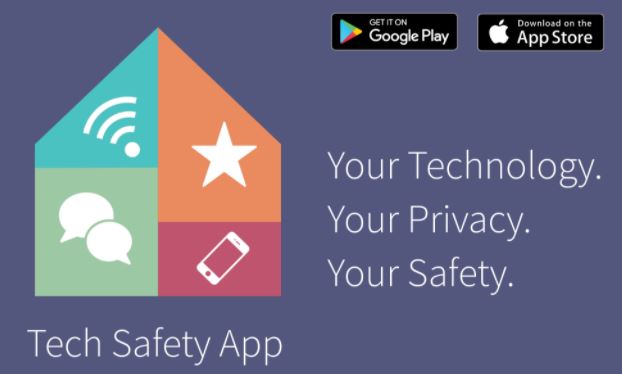
Tech Safety
“Computers, tablets, phones, apps, and social network sites impact how we connect to the world every day. They can offer help, valuable resources, and support if you are experiencing domestic violence or stalking. As you use technology and plan for your safety in these situations, it is also important to be aware of the risks. The information below can help you to use technology in more informed, safer ways. These tips provide suggestions for you to be aware of. But you are the only one who can decide what is best for you and your safety.”
https://www.safehorizon.org/tech-and-cyber-safety/
- English and Spanish
- Online Safety
- Networking Safely on Social Media
- Phone Safety
You can download Tech Safety Tips in English and Spanish.
Online Safety (for Teens) – Nemours KidsHealth
(kidshealth.org/en/teens/internet-safety.html)

KEEPING CHILDREN SAFE ONLINE
(US Dept of Justice)
From Keeping Children Safe Online (justice.gov)
“Due to COVID-19, kids and adults are online more than ever, often unsupervised in the same space.
“Help kids stay safe.”
“Parents should stay involved in their digital world, know the apps they use, use parental controls where possible, and block and report people who make them feel uncomfortable.
“Kids should talk with a trusted adult so they understand online risks, only chat with people they know, ensure their online accounts are private, block people they don’t know or trust, and trust their instinct—if something makes them feel uncomfortable, tell a trusted adult about it.
“Kids and parents should stay alert—people aren’t always who they seem in online environments where identity is easy to fake.
“Stay safe at home. Stay safe online.
“To report an online child sexual exploitation offense, call 911 or go to report.cybertip.org.”
For Parents, Family Members, Teachers, Educators, Young Adults & Teens
For More Information on Human Trafficking Awareness & Prevention
and
ONLINE SAFETY
https://youth.gov/youth-topics/trafficking-of-youth/the-problem
https://www.safehorizon.org/get-informed/human-trafficking-statistics-facts/#definition/
https://www.dosomething.org/us/facts/11-facts-about-human-trafficking
LGBTQ+ – https://polarisproject.org/
Survivor Care*Prevention Education*Strategic Collaboration with Adults – https://love146.org/
Short video explaining why children are most of the victims of trafficking – Hotline –
For Parents, Family Members, Teachers, Educators, Young Adults & Teens
For More Information on Human Trafficking Awareness & Prevention
and
ONLINE SAFETY
Frederick Douglass Initiative teaching awareness and prevention strategy to children in schools
https://www.covenanteyes.com/2016/01/22/porn-and-sex-trafficking-10-facts-from-the-experts/
Video in 10 Facts
in 56 Human Trafficking Facts
From 56 Human Trafficking Facts:
24. Sex traffickers often recruit children because not only are children more unsuspecting and vulnerable than adults, but there is also a high market demand for young victims. Traffickers target victims on the telephone, on the Internet, through friends, at the mall, and in after-school programs.[17]
28. Sex traffickers use a variety of ways to “condition” their victims, including subjecting them to starvation, rape, gang rape, physical abuse, beating, confinement, threats of violence toward the victim and victim’s family, forced drug use, and shame.[14]
49. The FBI estimates that over 100,000 children and young women are trafficked in America today. They range in age from nine to 19, with the average being age 11. Many victims are not just runaways or abandoned, but are from “good” families who are coerced by clever traffickers.[17]
52. Human trafficking victims face physical risks, such as drug and alcohol addiction, contracting STDs, sterility, miscarriages, forced abortions, vaginal and anal trauma, among others. Psychological effects include developing clinical depression, personality and dissociative disorders, suicidal tendencies, Post-Traumatic Stress Syndrome, and Complex Post-Traumatic Stress Syndrome.[14]
Shared Hope
- Influencing Federal and State Policy
- Victim’s Access to Services
- Ending Demand
- Combating Child Sex Trafficking Online
- Domestic Minor Sex Trafficking Research

Additional Resources
- Advocates and Shelters | WomensLaw.org (drop-down menu for your State)
- Click here to enter your zip code: Find Domestic Violence and Abuse Help, Information and Stats (domesticshelters.org)
Domestic Violence Support | The National Domestic Violence Hotline (thehotline.org)
- National Organizations | WomensLaw.org (listed by subject matter)
- Chat Rooms and Message Boards | WomensLaw.org
- VictimConnect (serves victims of crime in US (including assault, abuse, domestic violence, teen dating violence, trafficking, stalking, etc.), and make local referrals.
“A Parent’s Guide: Teen Acronyms, Emojis, Hashtags and Slang and Online Safety Guidelines.” (https://www.asafeplacetogo.com)
Mental Health Resources

